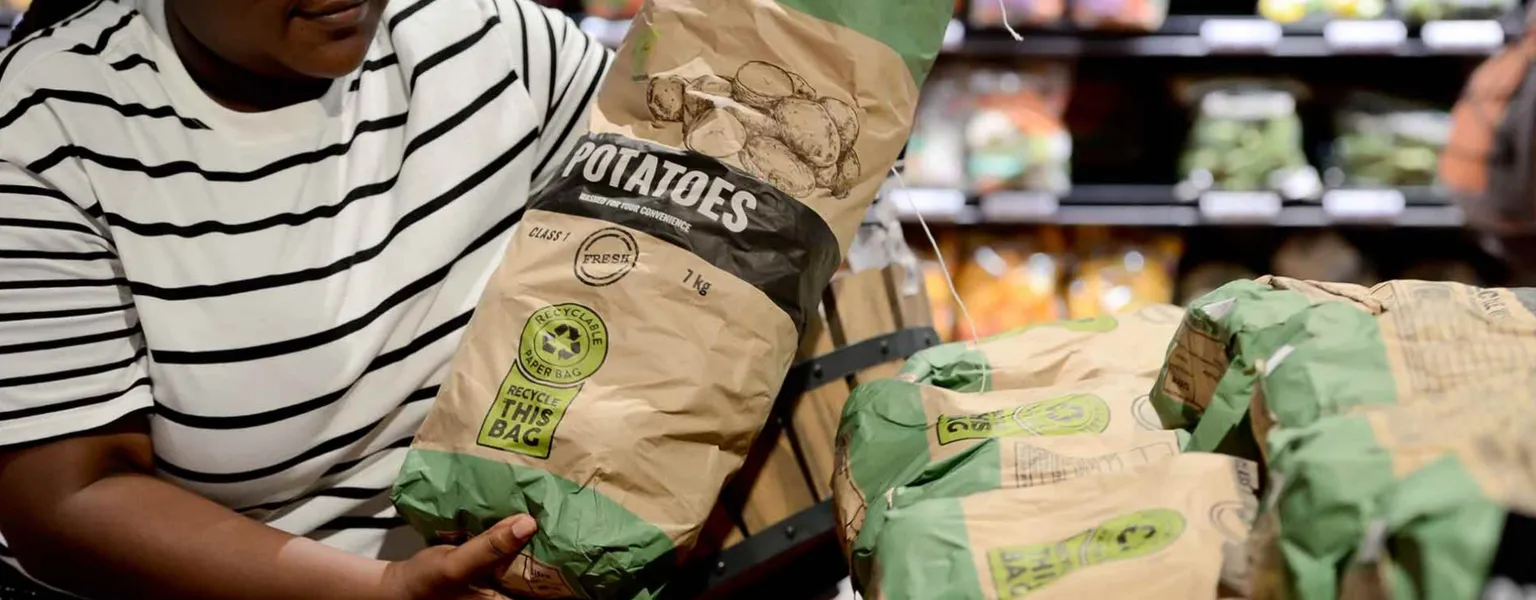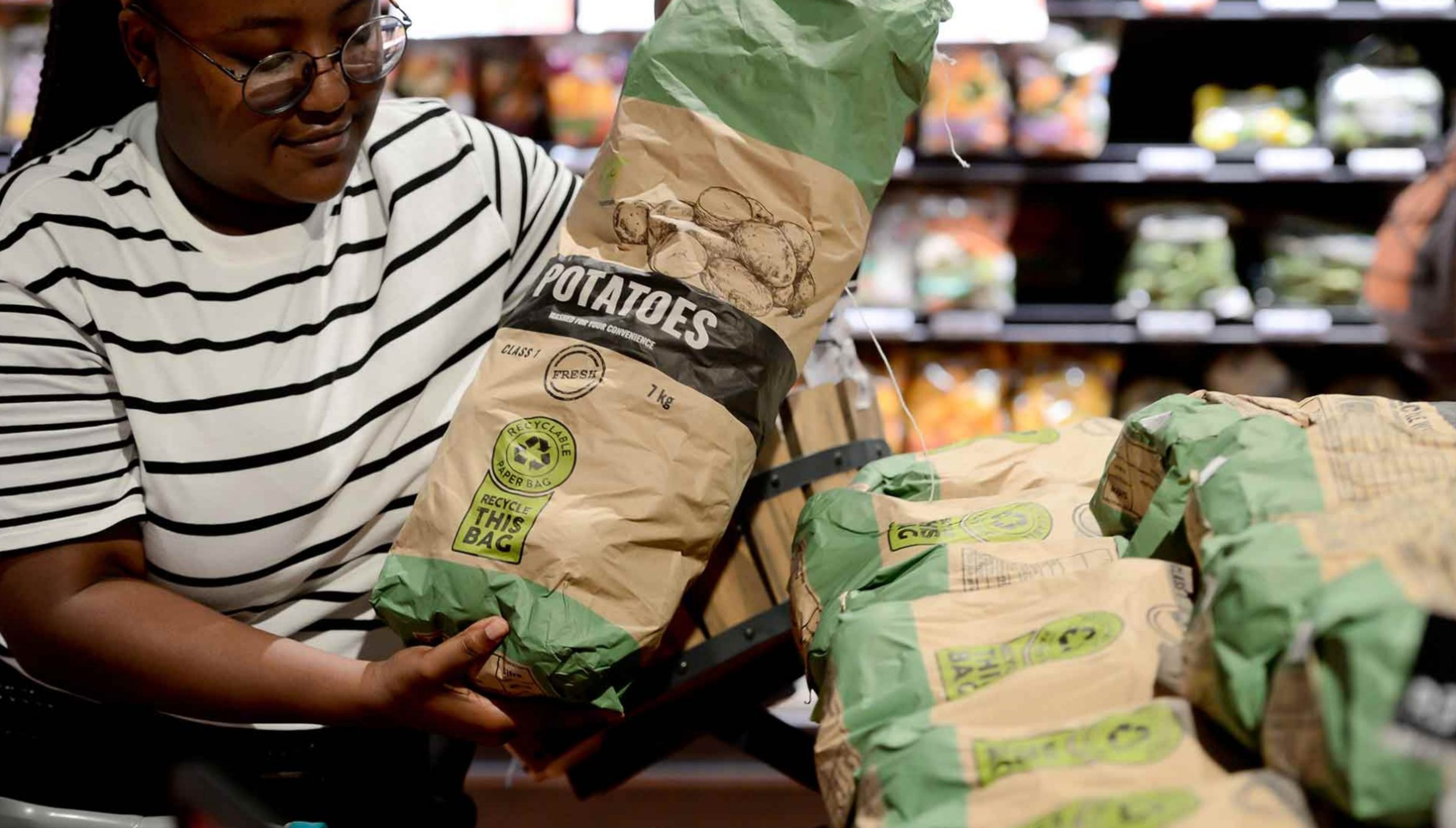Shoprite introduces South Africa’s first recyclable 7kg potato bag

Sustainability
The Shoprite Group has introduced South Africa’s first fully recyclable 7kg potato bag, marking a significant step towards more sustainable packaging in the local retail sector. This innovation addresses a long-standing environmental challenge posed by traditional potato bags, which typically contain a non-recyclable moisture-resistant inner layer.
Each year, approximately 18,600 tonnes of these composite potato bags are discarded in South Africa, contributing to landfill waste. The new design offers a recyclable alternative, aligning with the Group’s broader sustainability goals.

The solution was developed internally by a team of five Shoprite employees from different departments. As part of a leadership development programme, run in collaboration with the Gordon Institute of Business Science (GIBS), they were tasked with finding a sustainable alternative to the current 7kg potato bag.
While the objective seemed straightforward, the team soon encountered complex supply chain requirements. The inner wet-strength layer of the existing bags—essential for moisture absorption and mandated by industry standards—rendered them incompatible with conventional recycling systems. A prior study by the Council for Scientific and Industrial Research (CSIR) had indicated that specialised infrastructure, costing around R30 million per plant, would be needed to recycle this material.
The team consulted with various stakeholders, including packaging manufacturers, paper mills, recyclers, and even informal waste collectors, and evaluated a number of international and repurposing options. However, none proved viable in the South African context.
A breakthrough came when long-time supplier Billerud, a global paper manufacturer, took on the challenge through its Swedish R&D division. After an initial setback, the company succeeded in creating a semi-wet-strength paper formulation that passed local recyclability tests while meeting all technical requirements. The material change does not increase packaging costs and integrates seamlessly into current operations.
Following successful shelf-life tests, the new recyclable bags will be rolled out across over 1,400 Shoprite, Checkers, and Usave stores beginning May 2025.
This shift will see the percentage of Shoprite Group’s private-label packaging that is recyclable, reusable, or compostable rise from 88.9% to 90%, supporting the Group’s commitment to reach 100% by 2025.
In addition to the environmental advantages, the new packaging has the potential to boost incomes for South Africa’s informal waste-picking community. If adopted widely across the industry, the change could generate over R22 million in additional earnings.
Related News
-
Supplier News
Paramelt: How functional paper coatings offer recyclable packaging solutions
-
Technology
Laser etching on mangoes eliminates plastic stickers in Europe
-
Sustainability
New survey: more than half of UK adults shopping for fresh fruit and veg prefer loose over packaged
-
Events
What's new at the 2025 UK Food & Drink Shows?
-
Sustainability
Amazon pilots bio-based bags for grocery deliveries in Spain




